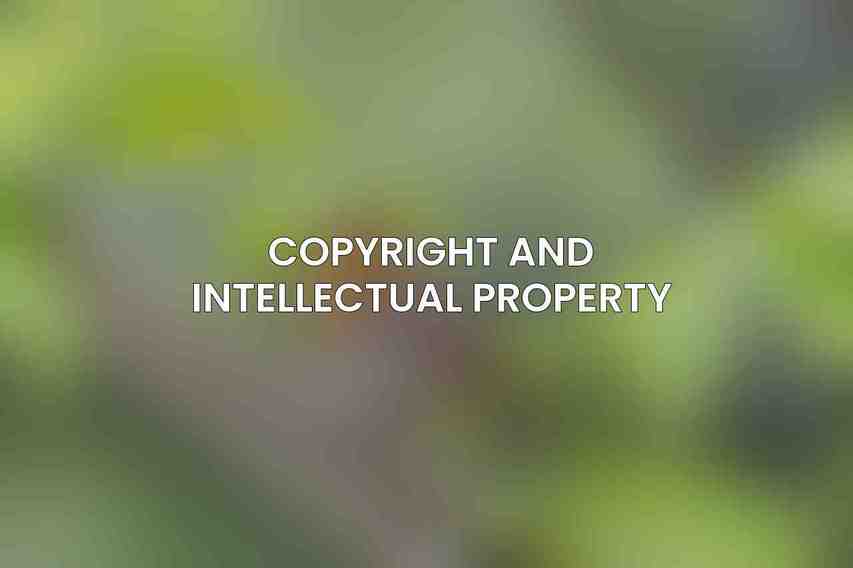Photography licensing is a crucial aspect of the photography business that allows photographers to control the use of their images and generate income from their work. Defining Photography Licensing involves granting permission to others to use your photographs under specific conditions while retaining the copyright. By licensing your photography, you can benefit from a consistent stream of revenue through royalties or one-time fees, expand your reach through broader exposure, and maintain creative control over your work. Before diving into the world of licensing, it’s essential to consider factors like your target market, the value of your images, and how you want your work to be used. Check out our insights into Digital Art Licensing Strategies for Artists and Galleries in 2024
Copyright and Intellectual Property

Understanding Copyright Law is fundamental for photographers looking to license their work. Copyright grants the creator exclusive rights to their images and prohibits others from using them without permission. Registering your photographs with the appropriate authorities, such as the U.S. Copyright Office, provides additional protection and legal benefits. It’s crucial to know the implications of Copyright Infringement and the potential penalties for unauthorized usage of your photos, ensuring you can enforce your rights effectively.
Pricing Your Photography
Determining the right pricing strategy for your photography licenses involves evaluating various Factors to Consider such as the usage scope, image quality, exclusivity, and market demand. Researching Industry Standard Rates can give you a benchmark to start from, but ultimately, your pricing should reflect the unique value of your work. When Negotiating Licensing Fees, it’s essential to be flexible yet firm in setting terms that are beneficial for both you and your clients.
Types of Photography Licenses and Agreements
Photography licenses come in different forms, including Exclusive Licensing, where the licensee has sole rights to use the image, Non-Exclusive Licensing, allowing multiple parties to use the photo, and Royalty-Free Licensing, which permits unlimited use for a one-time fee. Exploring Other Licensing Models like rights-managed licenses or creative commons can provide you with a range of options to monetize your photography.
Negotiating Licensing Contracts
When negotiating licensing contracts, it’s crucial to include Key Terms that define the scope of use, duration, and compensation. Understanding the Grant of Rights is essential to ensure that you retain control over how your images are used. Properly managing your Intellectual Property rights can safeguard your work and prevent unauthorized exploitation.
Protecting Your Work

To safeguard your images from misuse, techniques like Watermarking Your Images can deter unauthorized usage. Implementing Digital Rights Management (DRM) tools and embedding Metadata in your photos can help track and protect your copyright. Regularly Monitoring for Unauthorized Use of your work online is crucial to identify and address cases of infringement promptly.
Marketing Your Licensed Photography
Creating a compelling Licensing Portfolio showcasing your best work can attract potential clients and licensing opportunities. Promoting Your Services through social media, photography platforms, and networking events can help you reach a wider audience. Building strong Relationships with Licensing Partners based on trust and mutual benefit can lead to long-term collaborations and revenue streams.
Tax Considerations
Understanding the Tax Implications of licensing income is essential for managing your finances as a photographer. Reporting your Licensing Income accurately on tax returns and availing yourself of potential Tax Deductions related to your business expenses can help optimize your financial outcomes.
Emerging Trends in Photography Licensing
The photography licensing industry is continually evolving, with Stock Photo Licensing Platforms offering photographers new avenues to showcase and sell their work. Technologies like Blockchain and NFTs in Photography are revolutionizing how photographers can authenticate and monetize their digital assets. Additionally, Artificial Intelligence is playing a role in optimizing licensing processes and detecting unauthorized use of images.
Additional Resources
For photographers seeking further support and information, professional Photography Organizations such as the Professional Photographers of America (PPA) can provide valuable resources and networking opportunities. Legal resources tailored for Photographers can offer guidance on copyright law, contracts, and intellectual property protection. Following Photography Industry Blogs can keep you updated on the latest trends, tips, and market insights to enhance your licensing strategies.
By following this comprehensive guide to licensing your photography in 2024, photographers can navigate the intricacies of the licensing world, protect their work, maximize their revenue potential, and stay informed about industry advancements. Whether you are a seasoned professional or a budding photographer, understanding the nuances of licensing is key to unlocking new opportunities and establishing a successful photography business in the digital age.
Frequently Asked Questions
What is the first step to licensing my photography?
The first step is to make sure you have the legal rights to your photos, including model releases, property releases, and copyrights.
What are the different types of licenses I can offer for my photography?
You can offer exclusive licenses, non-exclusive licenses, or one-time use licenses, depending on your preference and the needs of your clients.
How do I determine a fair price for licensing my photography?
You can consider factors such as usage, exclusivity, and your own experience and expertise when determining a fair price for licensing your photography.
Do I need a written contract when licensing my photography?
Yes, it is highly recommended to have a written contract outlining the terms of the license agreement to protect both parties involved.
What steps should I take if someone is using my licensed photography without permission?
If someone is using your licensed photography without permission, you can send a cease and desist letter and pursue legal action if necessary to protect your rights.

